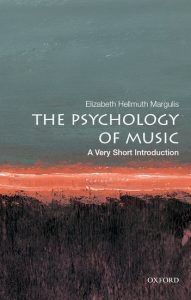Elizabeth Hellmuth Margulis at the blog of the Oxford University Press:
 Music can intensify moments of elation and moments of despair. It can connect people and it can divide them. The prospect of psychologists turning their lens on music might give a person the heebie-jeebies, however, conjuring up an image of humorless people in white lab coats manipulating sequences of beeps and boops to make grand pronouncements about human musicality.
Music can intensify moments of elation and moments of despair. It can connect people and it can divide them. The prospect of psychologists turning their lens on music might give a person the heebie-jeebies, however, conjuring up an image of humorless people in white lab coats manipulating sequences of beeps and boops to make grand pronouncements about human musicality.
In truth, that’s historically rather how music psychology used to work. In the early 1900s, elaborate mechanical apparatus were devised that purported to determine a child’s musical potential by measuring their perceptual acuity on tasks such as loudness discrimination. Measuring musical aptitude with performance on an acoustic judgment task misses out on what might be even more essential factors—say, the degree to which music captivates a child’s attention or inspires them to move.
But contemporary work on music perception embraces a variety of disciplines and methodologies, from anthropology to musicology to neuroscience, to try to understand the relationship between music and the human mind. Researchers use motion capture systems to record people’s movements as they dance, analyzing the gestures’ relationship to the accompanying sound. They use eye tracking to measure changes in infants’ attentiveness as musical features or contexts vary. They place electrodes on the scalp to measure changes in electrical activity, or use neuroimaging to make inferences about the neural processes that underlie diverse types of musical experiences, from jazz improvisation to trance-like states to simply feeling a beat.
More here.
